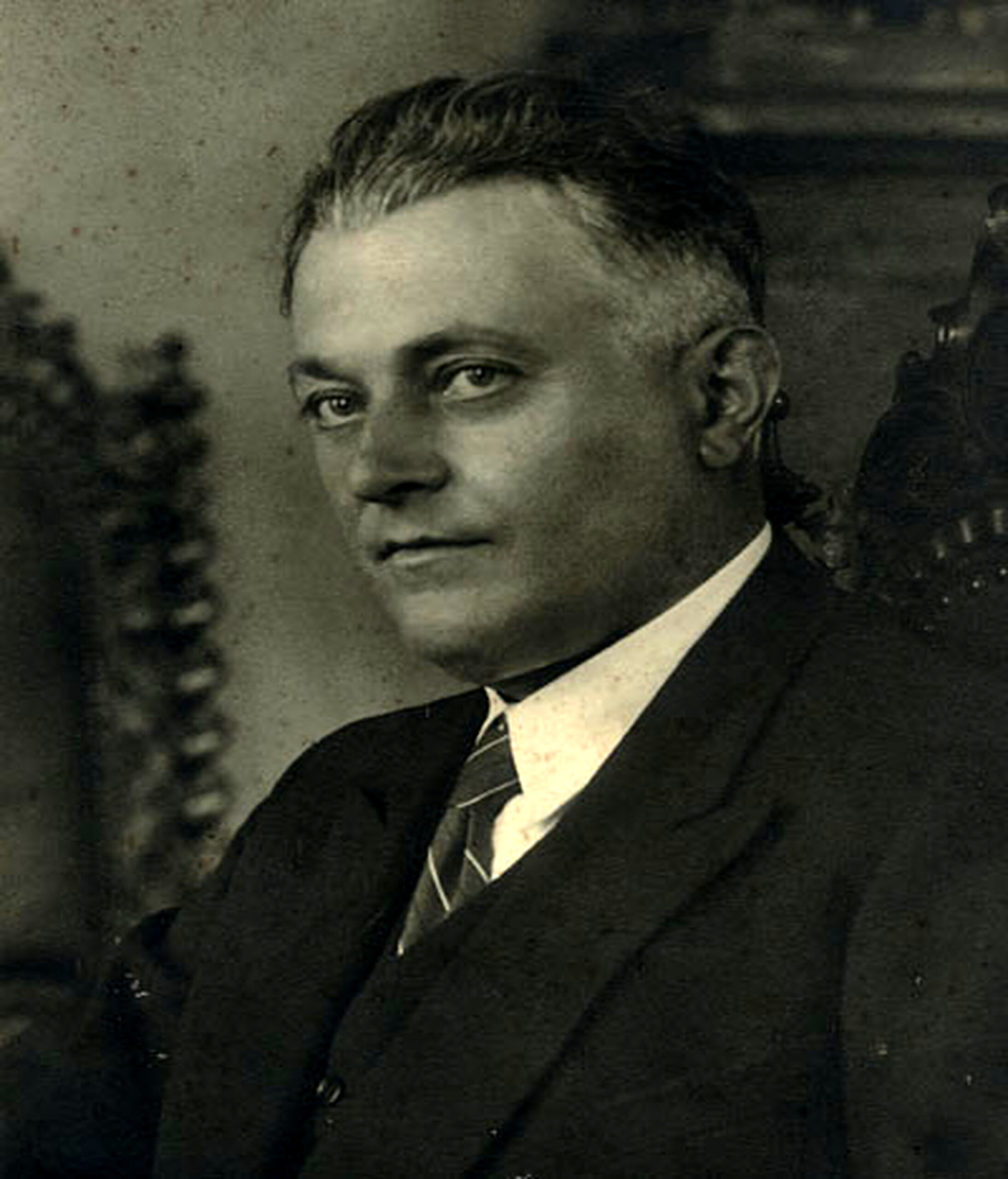Chiara Salomoni writes: Corrado Govoni was born near Ferrara in 1884 and died near Rome in 1965. He was a prolific writer of poetry, prose and drama.
Govoni joined the Futurist Movement and collaborated on Marinetti’s Notebooks but his crepuscular way of writing remained a characteristic of his poetry. He was the president of PEN Club Italia in 1938 and worked also for the SIAE (Italian Society of Authors and Publishers) from 1928 until 1943. Govoni was a contributor to some important Italian literary magazines, including Poesia, La Voce and Lacerba.
These two poems are included in L’inaugurazione della primavera (The spring opening) published in 1915. The book, praised by Eugenio Montale, ends the first phase of his literary production started in 1903. Corrado Govoni received several prizes for his poetry and literary work, among them the 1950 Premio Viareggio, the 1953 Premio Marzotto and the 1963 Premio Nazionale Letterario.
Il poeta e la bella straniera
In una gran città semisvenuta sotto la violenza dell’estate il giovane poeta vagabondo povero e biondo nella magia della sera incantata di luci sul traguardo del marciapiede incontra viva e palpitante la bellezza di tutto il mondo condensata in una maliarda straniera. Nella stamberga fredda e squallida l’immagine di quella ignota donna ch’egli vide passare ignuda nel vento lilla della sua gonna nell’anima turbata gli s’incide come un magnetico esse coronato da un fiore che sorride.
- Corrado Govoni
The poet and the gorgeous stranger
In a big city that has almost fainted under the summer force, the wandering young poet poor and blonde in the magic of the evening enchanted with lights along with the finishing line of the pavement runs into the beauty of the entire world condensed in a bewitching stranger, alive and vibrant. In the chilly and dreary shanty the vision, of that unknown woman that he saw passing by stark naked in the lilac wind of her skirt, leaves a mark on his troubled soul like a magnetic ‘S’ crowned by a smiling flower.
- Translated by Chiara Salomoni
Le cose che fanno la primavera
L’acqua rimbalzante dei passeri sui tetti. La ghirlanda umida di viole che le rondini sospendono intorno al cornicione della casa, all’alba. L’ombrello verde del mendicante di campagna che va in elemosina sotto la pioggia. L’organo di Barberia che suona nel sobborgo il valzer triste della Vedova Allegra. Le bianche nuvole di polvere che corron dietro agli automobili. Le lucciole nel camposanto. Il giardiniere che vernicia i sedili di legno del viale. L’innaffiatoio rosso abbandonato nel cortile. Il ciuffo d’erba fresca nella gronda. E la fontana che fa la piscia dentro il suo cerchio, mentre passan le guardie, col bastone sotto il braccio, senza far contravvenzione. L’asino del frate cercatore che s’impuntiglia in mezzo alla strada a non voler andar più avanti malgrado le legnate del padrone, perchè è passata l’asina dell’ortolano. Una rosa finta nel cappello d’una signora divorabile. E quella nuvola fanciulla che si dondola laggiù voluttuosamente rinfrescando tutto il cielo del roseo delle sue gambe ignude sull’altalena della doppia voce del cuculo.
- Corrado Govoni
Things that bring spring
The bouncing water of sparrows on the roofs. The wet wreath of violets that swallows hang around the house cornice at dawn. The green umbrella of the countryside beggar who asks for alms in the rain. The barrell organ that plays the wistful waltz of the Merry Widow on the outskirts of town. The white clouds of dust that follow the motorcars. The fireflies in the graveyard. The gardener who paints the wooden seats on the path. The red watering can left in the courtyard. The tuft of fresh grass in the gutter. And the fountain that has a piss within its circle, while the guards pass by, their batons under their arms, without fining anybody. The donkey of the begging friar that balks at going ahead in the middle of the street despite its owner’s thrashing, because the greengrocer’s jenny has just gone past. A fake rose on the hat of an attractive lady. And that girlish cloud that rocks down there sensually refreshing the whole sky with the pink tinge of her naked legs on the swing of the cuckoo’s double voice.
- Translated by Chiara Salomoni
